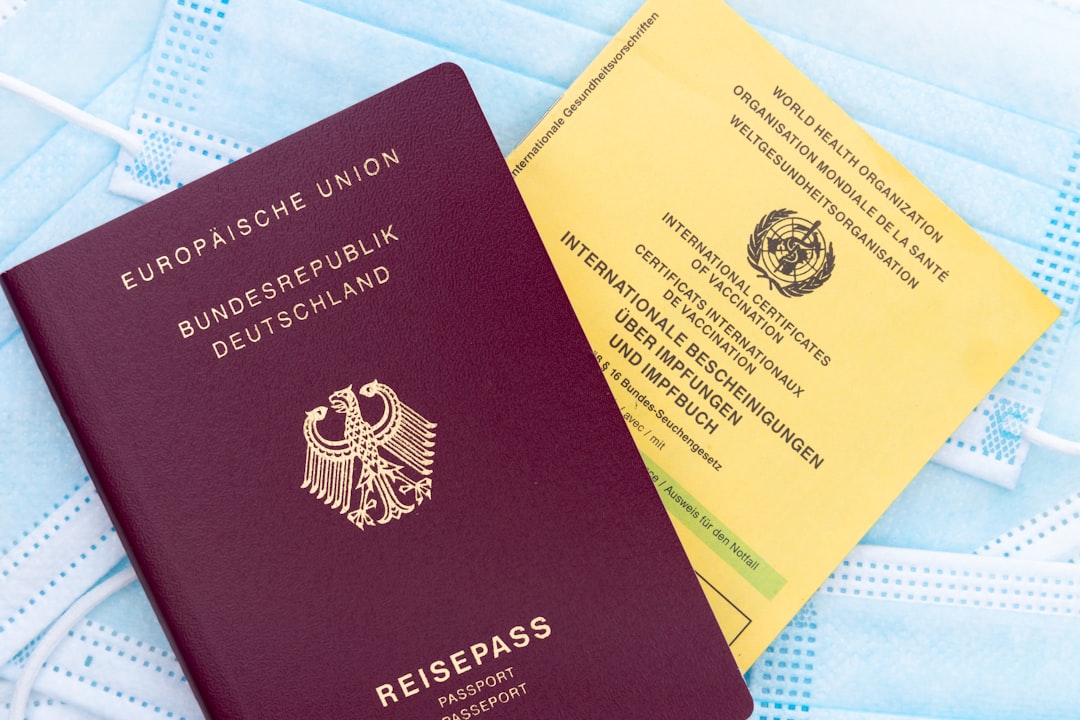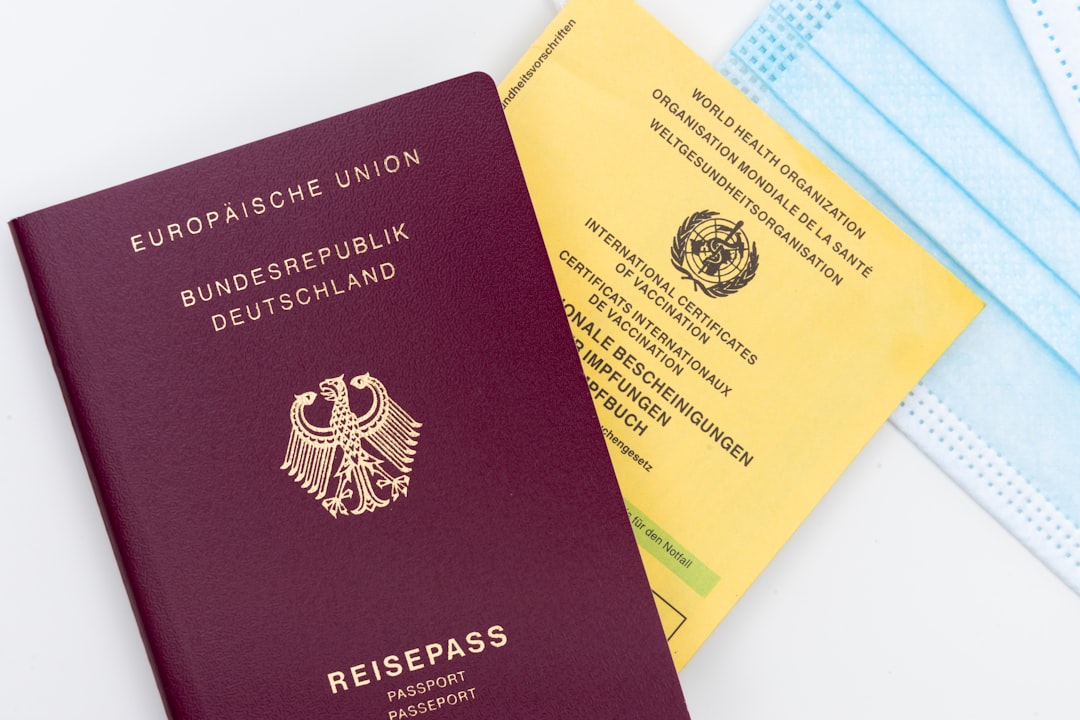Passport Expiration and Damage Overlooked Risks That Could Derail Your Trip
Passport Expiration and Damage Overlooked Risks That Could Derail Your Trip - Expiration Date Awareness - Ensure Ample Validity
When planning international trips, it's crucial to be aware of passport expiration dates and validity requirements.
Many countries mandate that passports be valid for at least six months beyond the intended travel dates.
The 3-month passport validity rule is a common requirement, particularly in the Schengen area.
Travelers are advised to have at least six months of validity left on their passports to avoid any issues.
If your passport is nearing expiration, it's recommended to renew it well in advance, as the process can take 8-11 weeks for routine service.
Physical damage to a passport, such as rips or water damage, can also render it invalid, even if it hasn't expired.
Overlooking these risks can lead to unexpected obstacles and delays during travel, underscoring the importance of regularly checking the condition and expiration date of your passport.
Many countries require a passport to be valid for at least 6 months beyond the planned travel dates, a rule known as the "6-month passport validity" requirement.
Failing to meet this can result in being denied entry.
For trips to the Schengen area, passports must be valid for at least 3 months beyond the intended departure date.
This is a strict requirement that is often overlooked by travelers.
In the United States, passport renewal by mail (using Form DS-82) has a processing time of 8-11 weeks for routine service.
Travelers should factor this lead time when planning their trips.
Physical damage to a passport, such as rips, water stains, or missing pages, can render it invalid even if it has not yet expired.
Careful handling of the passport is crucial to avoid such issues.
Some airlines may refuse to board passengers whose passports do not meet the validity requirements of the destination country, even if the passport has not yet expired.
It is essential to research the specific entry requirements of the destination country, as they can vary.
Checking the passport expiration date and necessity of visas is a critical step in trip planning.
Passport Expiration and Damage Overlooked Risks That Could Derail Your Trip - Safeguarding Against Accidental Damage
Simple steps like using a quality passport holder or wallet can go a long way in preventing physical wear and tear.
However, even the most diligent travelers may find their passports unexpectedly damaged.
In such cases, the replacement process mirrors applying for a new passport, requiring documentation and potentially delaying travel plans.
Travelers should also stay vigilant about their passport's expiration date, as many countries have strict requirements on minimum validity, often six months beyond the intended trip dates.
Exposure to strong magnetic fields can cause irreversible damage to the electronic chip embedded in modern passports, rendering them unusable for international travel.
A simple pen mark or ink stain on the biographical page of a passport can be grounds for rejection at border control in some countries, even if the damage is minor.
Passports stored in direct sunlight can experience accelerated fading of the photographic image and other security features, potentially raising suspicions of tampering.
Passports accidentally put through the washing machine have a high chance of delamination, where the layers of the document separate, again leading to potential invalidation.
The adhesive used to bind passport pages can break down over time, causing pages to become detached, a condition many countries consider significant enough damage to require a replacement.
Passports stored in humid environments are susceptible to mold growth, which can obscure or distort the printed information, making them unacceptable for international travel.
Even small tears or perforations along the edges of a passport page can compromise the structural integrity of the document and lead to rejection at border crossings in some cases.
Passport Expiration and Damage Overlooked Risks That Could Derail Your Trip - Water-Resistant Passport Covers - A Preventive Measure
Water-resistant passport covers can be a valuable investment to protect your passport from water damage, spills, and other physical wear and tear during travel.
These covers are designed using durable materials like ABS plastic and feature waterproof sealing to keep your important travel document safe, even in unexpected wet conditions.
Some passport covers also offer additional features like RFID blocking and dedicated slots for storing boarding passes and cards, making them a practical accessory for frequent travelers.
Water-resistant passport covers can protect your passport from accidental spills, splashes, and exposure to light rain, preventing water damage that could otherwise invalidate your travel document.
Some advanced passport covers feature RFID-blocking technology, shielding the embedded RFID chip in your passport from unauthorized scanning, enhancing your data security while traveling.
Certain water-resistant passport covers are designed with dedicated slots or compartments to neatly store your boarding passes, airline tickets, and other essential travel documents, keeping them organized and easily accessible.
The materials used in high-quality water-resistant passport covers, such as durable ABS plastic or reinforced polyester, can also protect against physical damage like scratches, tears, and wear and tear during frequent use.
Many water-resistant passport covers come with a lanyard or wrist strap, allowing you to securely attach your passport to your person, reducing the risk of accidentally misplacing or losing it while on the go.
Some water-resistant passport covers are equipped with a transparent window, enabling you to quickly display your passport's information without having to remove it from the case, streamlining border control and immigration processes.
Certain water-resistant passport covers are designed to be compatible with various passport sizes, ensuring a snug and protective fit for both standard and larger, biometric passports.
The use of water-resistant passport covers has been shown to extend the lifespan of passports, as they help mitigate the effects of everyday wear and tear, potentially saving travelers the time and expense of having to replace damaged or worn-out passports prematurely.
Passport Expiration and Damage Overlooked Risks That Could Derail Your Trip - Vigilance During Transit and Travel
Travelers must be vigilant to protect their passports during transit and travel.
Passports can be easily damaged during transport or through exposure to various environmental factors, rendering them unusable for international travel.
Careful handling and the use of protective accessories like water-resistant passport covers are crucial to safeguarding this essential travel document.
Exposure to strong magnetic fields can irreversibly damage the electronic chip in modern passports, rendering them unusable for international travel.
A simple pen mark or ink stain on the biographical page of a passport can be grounds for rejection at border control in some countries, even if the damage is minor.
Passports stored in direct sunlight can experience accelerated fading of the photographic image and other security features, potentially raising suspicions of tampering.
Passports accidentally put through the washing machine have a high chance of delamination, where the layers of the document separate, leading to potential invalidation.
The adhesive used to bind passport pages can break down over time, causing pages to become detached, a condition many countries consider significant enough damage to require a replacement.
Passports stored in humid environments are susceptible to mold growth, which can obscure or distort the printed information, making them unacceptable for international travel.
Even small tears or perforations along the edges of a passport page can compromise the structural integrity of the document and lead to rejection at border crossings in some cases.
Water-resistant passport covers can protect your passport from accidental spills, splashes, and exposure to light rain, preventing water damage that could otherwise invalidate your travel document.
The use of water-resistant passport covers has been shown to extend the lifespan of passports, as they help mitigate the effects of everyday wear and tear, potentially saving travelers the time and expense of having to replace damaged or worn-out passports prematurely.
Passport Expiration and Damage Overlooked Risks That Could Derail Your Trip - Prompt Replacement for Damaged Documents
Significant passport damage, such as water damage, major tears, or compromised biometric information, often necessitates prompt replacement.
The US Department of State offers a streamlined process for replacing damaged passports, requiring supporting documents and a completed application form.
While normal signs of wear and tear typically do not qualify for replacement, severe damage may require additional measures like providing a statement explaining the issue.
Contrary to popular belief, normal signs of wear and tear, such as bends or creases, typically do not qualify for passport replacement, as long as the biometric information remains intact.
The US Department of State requires applicants to provide proof of citizenship, such as a birth certificate or expired passport, when applying for a replacement of a damaged passport.
Damaged passports with significant issues like water damage, torn pages, or a detached cover may not be returned to the applicant, even after a replacement is issued.
Processing times for passport replacement applications can vary significantly, ranging from 6-8 weeks for standard service by mail to as little as 2-3 weeks for expedited service.
In some cases, individuals may be required to provide a written statement explaining the circumstances of the passport damage, in addition to the standard replacement application.
Exposure to strong magnetic fields, such as those found in airport security scanners, can permanently disable the electronic chip embedded in modern passports, rendering them unusable for international travel.
A simple pen mark or ink stain on the biographical page of a passport may be grounds for rejection at border control in certain countries, even if the damage is minor.
The adhesive used to bind passport pages can break down over time, causing pages to become detached, a condition that many countries consider significant enough damage to require a replacement.
Passports stored in humid environments are susceptible to mold growth, which can obscure or distort the printed information, making them unacceptable for international travel.
Even small tears or perforations along the edges of a passport page can compromise the structural integrity of the document and lead to rejection at border crossings in some cases.
Passport Expiration and Damage Overlooked Risks That Could Derail Your Trip - Thorough Pre-Trip Passport Inspection
A thorough pre-trip passport inspection is essential to ensure a smooth and trouble-free international journey.
Overlooked risks such as passport expiration and damage can derail travel plans, so it's crucial to carefully examine your passport well in advance of your trip.
From checking the expiration date to inspecting for any physical wear and tear, taking the time to thoroughly inspect your passport can help you avoid unexpected issues at the border.
Passport expiration is a common oversight, with many countries requiring at least 6 months of validity beyond the intended travel dates.
Even minor physical damage, such as water stains or pen marks, can render a passport invalid for international travel in some countries.
Exposure to strong magnetic fields can permanently disable the electronic chip embedded in modern passports, rendering them unusable.
Accelerated fading of the passport's photographic image and security features can occur when stored in direct sunlight, raising suspicions of tampering.
Washing a passport in a washing machine can lead to delamination, where the layers of the document separate, potentially invalidating it.
Over time, the adhesive binding the passport pages can break down, causing pages to become detached, a condition often requiring replacement.
Mold growth in humid environments can obscure or distort the printed information in a passport, making it unacceptable for travel.
Even small tears or perforations along the edges of a passport page can compromise the structural integrity of the document, leading to rejection at border crossings.
Water-resistant passport covers can protect against accidental spills, splashes, and light rain, helping to extend the lifespan of the passport.
The use of water-resistant passport covers has been shown to help mitigate the effects of everyday wear and tear, potentially saving travelers the time and expense of premature passport replacement.
Prompt replacement is required for passports with significant damage, such as water damage or compromised biometric information, with the process involving supporting documents and a completed application form.

